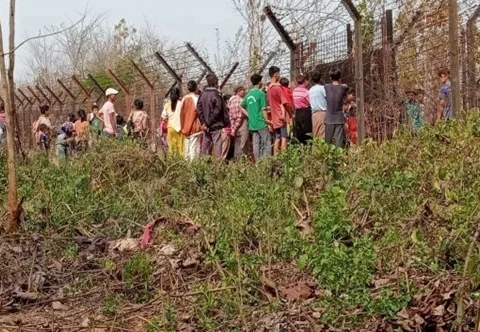Canada Strengthens Arctic Presence Amid Climate Change and Rising Geopolitical Interest
Arctic Strategic Importance
The Arctic region is becoming a key focus due to the thawing ice caused by climate change, which is opening up access to natural resources like oil, gas, minerals, and fish. This has prompted increased attention from Arctic-border nations like Canada, the United States, and Russia, with China also showing interest in the region as a “new crossroads of the world.” In response, Canada has announced plans to strengthen its military and diplomatic presence in the area, which covers 40% of the country’s territory and 75% of its coastline.
Bolstering Canada’s Arctic Presence
Canada’s efforts to enhance its Arctic capabilities include deploying new patrol ships, destroyers, icebreakers, and submarines, as well as increasing the number of planes and drones for surveillance and defense. The Northwest Passage, which connects the Atlantic and Pacific Oceans, is expected to become a critical trade route, further heightening the need for Canadian presence and infrastructure in the region.
Military Operations and Challenges
Operating in the Arctic is complex due to extreme conditions, with temperatures reaching -50°C (-58°F). Canada relies on specialized equipment, such as planes capable of landing on frozen lakes, and the use of strategic transport aircraft like the Twin Otter to navigate the rugged landscape. Major Marlon Mongeon, a pilot, highlighted the importance of asserting Canadian sovereignty over its borders and land in these remote areas.
Role of Canadian Rangers
Canada’s northern military presence is supported by the Canadian Rangers, a group of reservists stationed in remote Arctic regions, many of whom are from Indigenous communities. The Rangers, known as “the eyes and ears of the north,” are essential for monitoring vast areas, totaling more than four million square kilometers (1.5 million square miles). Their deep knowledge of the land, combined with modern military techniques, enables them to respond rapidly to incidents, such as sovereignty breaches or accidents in the harsh environment.
Increased Shipping and Trade Routes
Climate change has made the Northwest Passage more navigable during the summer months, shortening travel times from Europe to Asia by one to two weeks compared to the traditional Suez Canal route. This increased traffic, including cruise ships, has heightened the need for Canada to improve its emergency response capabilities in the Arctic. Training exercises in Yellowknife are being conducted to prepare for various contingencies, such as ice water rescues.
Environmental Challenges
While Canada’s military preparations focus on defense and sovereignty, the environment remains the greatest danger in the Arctic. Canadian Ranger Thomas Clarke emphasized that “Mother Nature” is the most hostile threat, with the harsh conditions posing risks to anyone navigating or operating in the region.
Key Points
- Thawing Arctic ice is increasing access to valuable resources and prompting greater geopolitical interest, particularly from the US, Russia, and China.
- Canada is enhancing its military presence with new ships, aircraft, and submarines, alongside increased surveillance capabilities.
- The Canadian Rangers play a crucial role in monitoring the Arctic and responding to incidents in remote areas.
- Climate change is making the Northwest Passage more accessible, which could shorten shipping routes but also increase the need for emergency response.
- Extreme Arctic conditions remain the biggest danger, highlighting the importance of specialized training and equipment.
As the Arctic becomes a focal point for both strategic military interests and economic opportunities due to climate change, Canada is taking steps to bolster its presence and protect its sovereignty. The Canadian Rangers, along with the military’s expanded resources, are vital to navigating the challenges posed by this harsh, changing environment. However, the ongoing risks from extreme weather conditions underscore the need for constant vigilance in one of the world’s most unforgiving regions.










